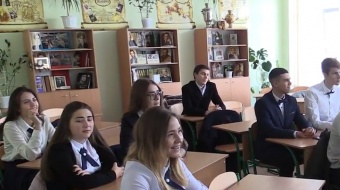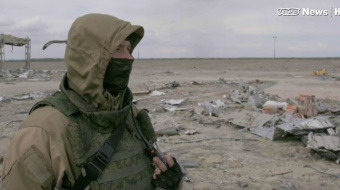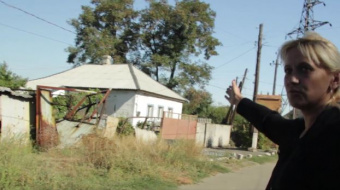How Croatia won separatism and why Ukraine is not Croatia. Part 2
How Croatia won separatism and why Ukraine is not Croatia. Part 2
In the conditions of the Russian military aggression the experience of other countries that have faced similar challenges became actual for Ukraine. In this context, they often referred to the experience of Croatia, one of few countries which managed to repel military aggression and to recapture its territory within the administrative boundaries.
This experience is especially interesting because it includes both military operations and political dialogue and peaceful reintegration. In Ukraine we decided to talk more about the military components of Croats success. The political component is less likely to say or we almost do not say about it.
Please follow the link to read the 1st part of the story
Peaceful reintegration
Former Minister of Foreign Affairs of Croatia, Mate Granic believes that no peaceful reintegration would not have been possible without the successful military operations. "At first it was necessary to show the power, and then to speak," - he says.
Croatia has helped by intractability of the Serbian side. Between 1992 and 1995, Serbs have received proposals of peaceful integration with broad autonomy rights, but they were all rejected."They have shown tremendous political shortsightedness", - said the former Minister for Foreign Affairs.
Former Foreign Minister Mate Granic believes that without a military operation they would achieve nothing
Granic also believes that a tough position the president of Croatia, Franjo Tudjman at the time helped to solve the problem of the occupied territories. At the stage of the military operation an international pressure has exerted on him to stop fighting but he did not give up to this pressure.
The first president of Croatia, Tudjman has come a long way from the communist guerrilla warrior in World War II to the dissident who was accused of nationalism. Now he is a national hero for many Croats that could save the country and defend its territory in a difficult political situation. Tudjman's Tomb is located in the most prestigious cemetery in Zagreb
Croatian military men are buried at the same cemetery
The former head of the Government Committee on displaced persons and refugees Lovro Peykovich told us on the political aspect of the reintegration.
The inhabitants of the occupied territories did not have passports. In order to vote in the elections, they had to get the documents. They confirmed the recognition of the independence of Croatia by the fact of receipt of the documents. Passport made it possible to receive social assistance.
Hundreds of thousands of displaced people can vote in the first local elections, and they can do this without physical return to the occupied territory.
Measures were taken to prevent the radicals to participate in the elections; the voters did not vote for the party, and for particular people. Elections were held after a complete demilitarization of the region. The Croatian authorities have acknowledged some civil documents issued by the authorities of the Srpska Krajina such as a birth or death certificate. Amnesty was granted to the members of the Serbian armed forces who have not committed crimes.
Probably the most important element of reintegration was the work of the transient police which was the only armed force under the terms of demilitarization, and it was armed only with pistols. They carried out demilitarization in the territories, it was offered to surrender weapons voluntarily or sell it, and searches have been conducted.
Former Deputy Minister of Internal Affairs of Croatia Joško Morič who oversaw the work of the transitive police, moved to reside in Vukovar at the time of reintegration.
Joško Morič told how he was suspected of treason for wanting to resolve the conflict peacefully
A former police officer believes that the peaceful reintegration has no alternative. During the war he conducted informal talks with the Serbs, his wife is Serbian, so Morič position does not always find understanding from the side of his compatriots.
Former Deputy Minister said that when it became known that he married a Serb woman they began to look at him as a potentially unreliable man that was a certain element of social stigmatization. However, this did not prevent him to survive in his chair a few heads of the Ministry of Internal Affairs.
"Sometimes you have to eat frogs, so as to not have eat crocodiles further", - says Morič when he asked to comment the concessions to the Serb side during the peaceful integration.
Serbs and Croats have been recruited in the ranks of transitive police force in approximately equal proportions, with a slight predominance of the Serbs. "Elder" policemen of Srpska Krajina became the new policemen.
The participants of Serbian military units and persons who openly supported separatism were not recruited in the police. "The police was all in this territory", - says Morič.
At first, the police were trained in Hungary. There was not all roses. During a short (almost 2-year) period of the transitive police work hundreds of Serbs and Croats have written letters of resignation from its ranks as it was difficult for them to work with each other.
Morič believes that integration cannot be called easy, and few people believed in its success, and some politicians speculated on this topic wanting to get political dividends.
"Whatever we began to do, we talked about the many reasons why this is not possible ", - says the former deputy minister.
"The logic of a sound mind" helped him in his work, as he says, "without politics". "The attack is the attack, the theft is the theft and no more", - comments Morič his attitude to the offenses in the period of reintegration.
There was a lot of conflict episodes where it was necessary to show self-control like these when a Croat comes back to his house and saw that Serb already lives there.
Please follow the link to read the 3rd part of the story
New service "Explain Ukraine". This is a daily mailout of five articles which were written about the situation in the Donbas by Donbas journalists and translated into English. Honest vision of people who work in the field is unbiased and fresh which is crucial in the world which is full of desinformation and propaganda. We try to share this vision in out daily mailout. You can subscribe here.














